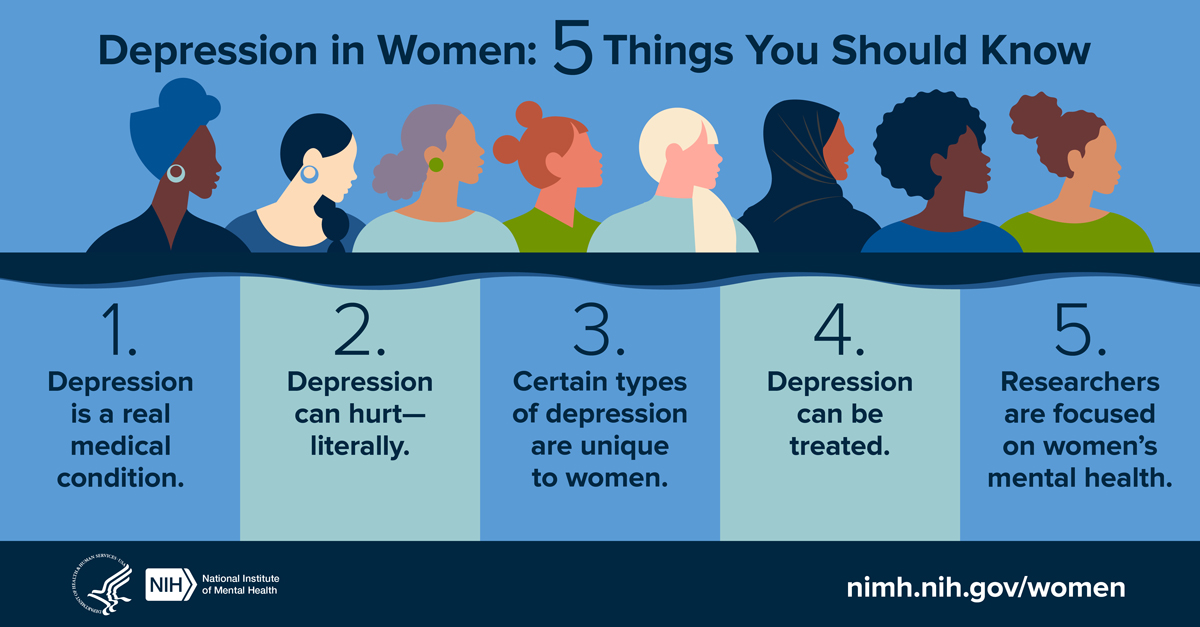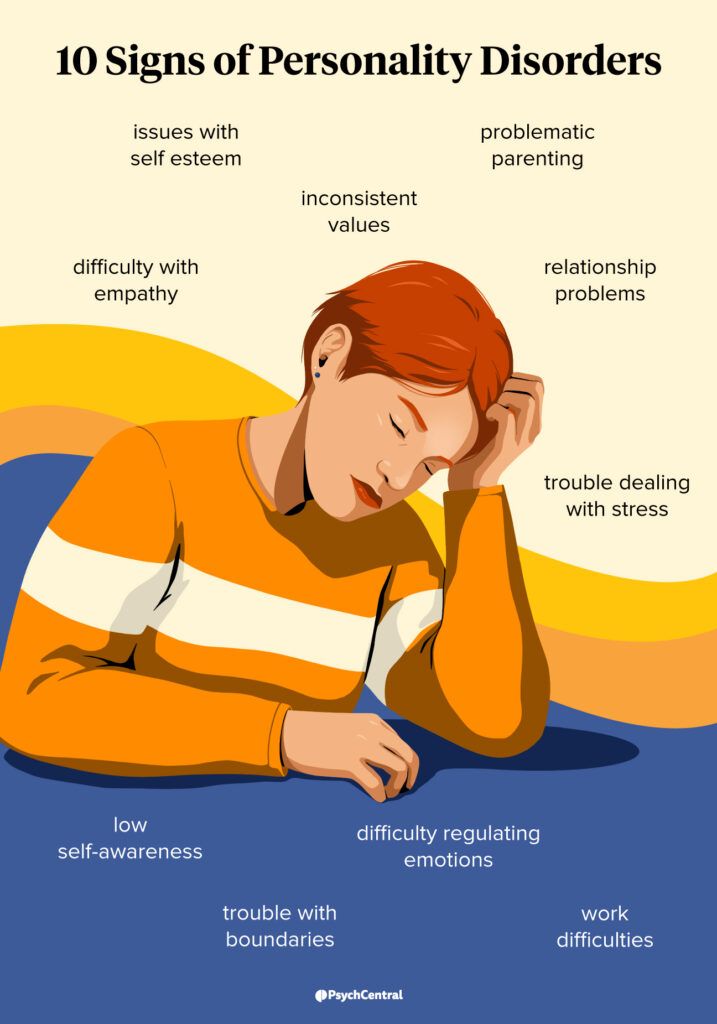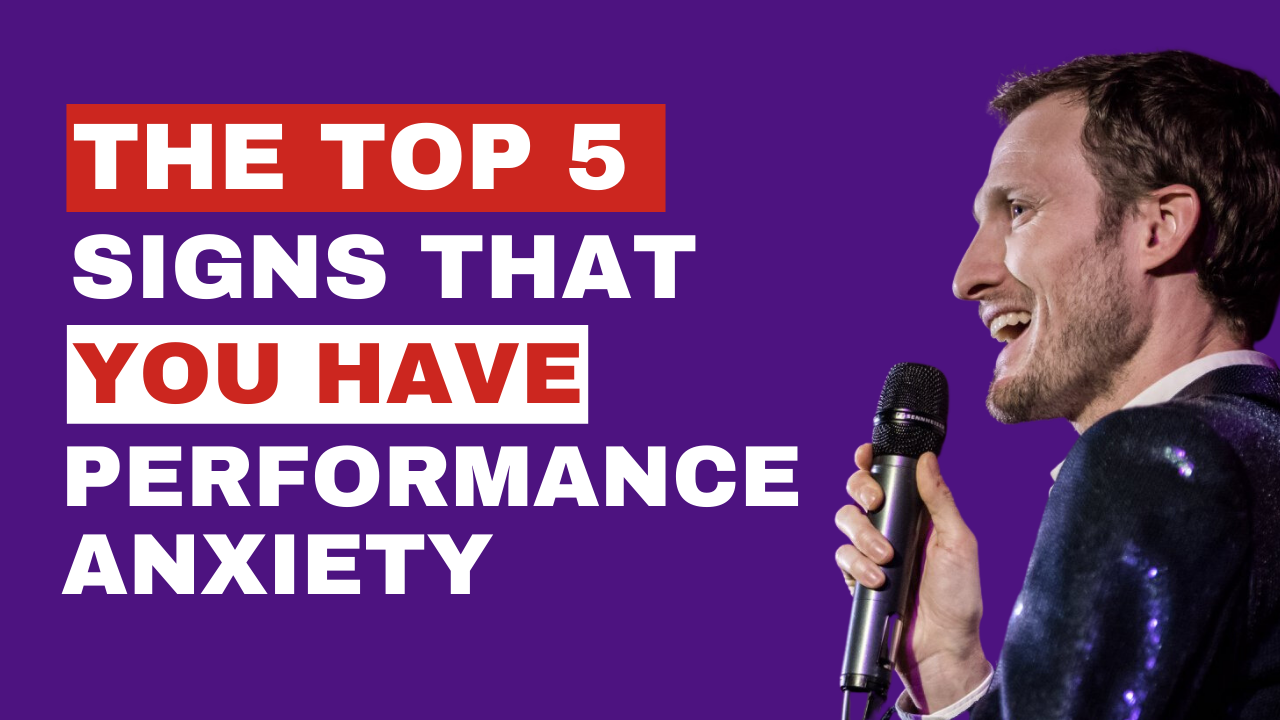Do you often experience difficulty concentrating, muscle tension, restlessness, fatigue, or panic attacks? These could be signs that you might have anxiety.
Anxiety is a common mental health condition that can manifest in various ways, including physical symptoms and emotional distress. It is important to be aware of these signs as early intervention and appropriate treatment can help manage anxiety effectively. If you suspect that you may have anxiety, it is recommended to consult with a healthcare professional to receive a proper diagnosis and explore potential treatment options.

Credit: www.youtube.com
Understanding Anxiety
Experiencing sleep issues, fatigue, muscle tension, panic attacks, and restlessness may be signs that you have anxiety. If you find it difficult to concentrate and constantly worry, you could be dealing with anxiety as well. Seek appropriate anxiety disorder treatment for a manageable life.
5 Common Anxiety Disorders
Anxiety is a common mental health condition that affects millions of people worldwide. While everyone experiences anxiety from time to time, some individuals may develop chronic anxiety disorders that require professional help. There are five common anxiety disorders that include Generalized Anxiety Disorder (GAD), Obsessive-Compulsive Disorder (OCD), Panic Disorder, Post-Traumatic Stress Disorder (PTSD), and Social Anxiety Disorder. These disorders can significantly impact a person’s life, making it crucial to understand the signs and seek appropriate anxiety disorder treatment.What Crippling Anxiety Feels Like
Crippling anxiety can be an overwhelming and distressing experience. If you have ever felt intense agitation or irritability, trouble sleeping, racing thoughts, or physical symptoms such as muscle aches, difficulty breathing, or dizziness, you may be experiencing crippling anxiety. These symptoms can make it challenging to carry out daily activities and can negatively impact your overall well-being. It is essential to recognize these signs and seek support to manage and cope with crippling anxiety effectively.Physical Symptoms Of Anxiety
Anxiety not only affects our mental state but also manifests physically. When experiencing anxiety, you may notice various physical symptoms. These can include an increased heart rate, shortness of breath, sweating, trembling, stomachaches, and muscle tension. It’s important to remember that these physical symptoms are a natural response to anxiety and are not indicative of a physical illness. Recognizing these physical signs can help you identify when you might be dealing with anxiety and take appropriate steps to manage and alleviate your symptoms. In conclusion, understanding anxiety is crucial in identifying and managing this common mental health condition. By being aware of the five common anxiety disorders, recognizing the symptoms of crippling anxiety, and understanding the physical manifestations of anxiety, you can take proactive steps to seek the necessary support and treatment. Remember, you are not alone, and with the right resources, anxiety can be effectively managed, allowing you to lead a fulfilling and balanced life.
Credit: www.nimh.nih.gov
Signs And Symptoms Of Anxiety
Anxiety is a common mental health condition that affects millions of people worldwide. It can manifest in various ways, and recognizing the signs and symptoms is crucial in seeking help and finding appropriate treatment. In this article, we will explore five common signs that indicate you might have anxiety.
Restlessness And Irritability
One of the most prominent signs of anxiety is feeling restless or on edge. You may find yourself constantly fidgeting, unable to sit still, or feeling an impending sense of doom. This restlessness often leads to irritability, where even the smallest things can trigger anger or frustration. It’s important to recognize this symptom and seek support from a healthcare professional.
Sleep Issues And Fatigue
Anxiety can significantly impact your sleeping patterns, leading to difficulties falling asleep or staying asleep. This can cause fatigue and exhaustion, making it challenging to perform daily activities. Furthermore, anxiety often leads to racing thoughts and worry, which can keep you awake at night. If you’re experiencing sleep disturbances and constant tiredness, it could be a sign of anxiety.
Difficulty Concentrating
Another common symptom of anxiety is difficulty concentrating or feeling your mind goes blank. Anxiety can consume your thoughts, making it challenging to focus on tasks at hand. Your mind may feel overwhelmed and scattered, making it difficult to retain information or complete tasks efficiently. If you’re finding it hard to concentrate, it’s important to address this symptom and seek professional help.
Seeking Treatment For Anxiety
If you’ve been experiencing symptoms of anxiety, it’s important to seek treatment to help manage your condition and improve your quality of life. Ignoring or trying to cope with anxiety on your own can lead to worsening symptoms and potential complications. Here are some key aspects of seeking treatment for anxiety:
Diagnosing Anxiety Disorders
Proper diagnosis is the first step towards effective treatment. Anxiety disorders can manifest in different ways, such as generalized anxiety disorder, obsessive-compulsive disorder (OCD), panic disorder, post-traumatic stress disorder (PTSD), or social anxiety disorder. A healthcare professional can assess your symptoms and determine the specific type of anxiety disorder you may have.
Available Treatments And Therapies
There are various treatment options available for anxiety disorders. The most common approaches include:
- Medication: Depending on the severity of your symptoms, your healthcare professional may prescribe anti-anxiety medications to help regulate brain chemistry and reduce anxiety levels.
- Therapy: Different types of therapy, such as cognitive-behavioral therapy (CBT), can be effective in treating anxiety. CBT helps identify and change negative thinking patterns and behaviors that contribute to anxiety.
- Lifestyle changes: Engaging in stress-reducing activities like exercise, practicing relaxation techniques, and maintaining a healthy diet can also play a significant role in managing anxiety.
Managing Anxiety On A Daily Basis
While seeking treatment is crucial, managing anxiety on a daily basis is equally important. Here are a few strategies that can help:
- Schedule self-care: Set aside regular time for activities that promote relaxation and self-care, such as taking a bath, reading a book, or practicing mindfulness exercises.
- Establish a routine: Creating a structured daily routine can provide a sense of stability and control, reducing anxiety triggers.
- Practice stress-reducing techniques: Incorporate stress-reducing techniques into your daily routine, such as deep breathing exercises, meditation, or yoga.
In Conclusion,
Seeking treatment for anxiety is essential to effectively manage the condition. A proper diagnosis, combined with available treatments and therapies, can provide relief from anxiety symptoms. Additionally, incorporating daily strategies to manage anxiety can contribute to long-term well-being. Remember, you don’t have to face anxiety alone – reach out to healthcare professionals and treatment providers who can guide you towards a healthier and happier life.

Credit: psychcentral.com
Frequently Asked Questions For 5 Signs You Might Have Anxiety
What Are 5 Common Symptoms Of Anxiety?
Common symptoms of anxiety include sleep issues, fatigue, muscle tension, panic attacks, and restlessness. Difficulty concentrating, excessive worrying, stomachaches, and dizziness are also common. Seek professional help if you experience these symptoms.
What Is The 3 3 3 Rule For Anxiety?
The 3 3 3 rule for anxiety consists of three techniques to help manage anxiety attacks. These techniques are: 1. Look around: Identify and name three things you can see around you. 2. Listen: Identify and name three sounds you can hear.
3. Move: Move your body by doing three simple exercises or stretches. By doing these three things, you can help distract your mind from the anxiety and bring yourself back to the present moment.
What Are The 5 Of Anxiety?
The 5 symptoms of anxiety are sleep issues, fatigue, muscle tension, panic attacks, and restlessness.
What Does Crippling Anxiety Feel Like?
Crippling anxiety can cause sleep issues, fatigue, muscle tension, panic attacks, restlessness, difficulty concentrating, excessive worrying, stomachaches, and dizziness.
Conclusion
If you’ve been experiencing sleep issues, fatigue, muscle tension, panic attacks, or restlessness, these could be signs that you might have anxiety. It’s important to remember that anxiety can manifest in different ways and may require appropriate treatment. If you’re experiencing any of these symptoms, it’s recommended to seek professional help and get a proper diagnosis.
Remember, you’re not alone, and there are ways to manage anxiety and improve your overall well-being.



